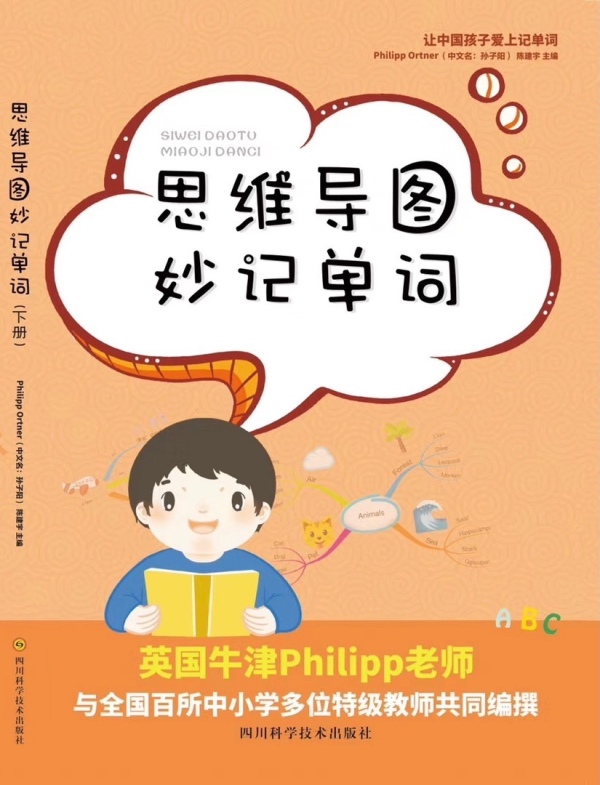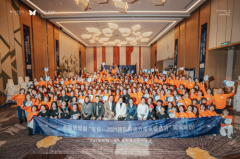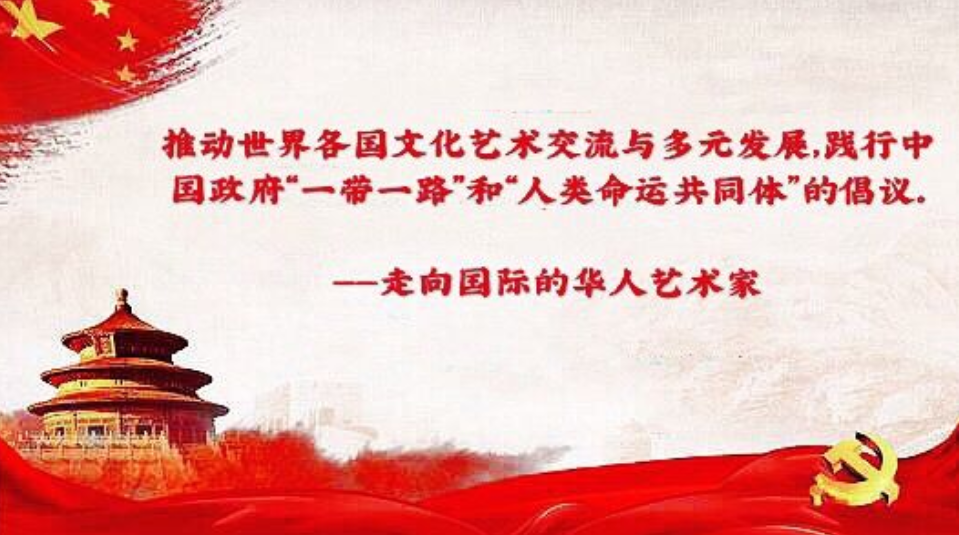A new era of learning | An exclusive interview with Mr. Philipp Ortner and Professor Chen Jianyu
聚焦学习革命新纪元|约访《思维导图妙记单词》主编Mr. Philipp Ortner和陈建宇教授
In the light of the digitalization of most aspects of society, the world has entered a new era of learning, and with it we are confronted with a number of new issues: How can children and adults all over the world learn more with less time available? How can we make sure learning stays a joyful experience, and how do we hold on to the knowledge we learn and comprehend information that has become more and more fragmented? Today, we have invited Mr. Philipp Ortner and Professor Chen Jianyu, the editors in chief of the book “Siwei Daotu Miaoji Danci”, to explore a new and “revolutionary” era of learning.
学习时代的到来,如何让全世界的成年人包括小孩子在较少的时间里学习更多的东西?怎样享受学习?怎样保存所学的内容?今天就带领大家认识《思维导图妙记单词》主编Philipp Ortner先生和陈建宇教授,一起探索学习革命新纪元。
Mr. Philipp Ortner has graduated from Oxford Brookes University in the UK. He works with several renown education institutions in Europe and supports their activities in China. He has also made outstanding contributions in promoting the cooperation in education and the cultural exchange between China and Europe, especially in the field of language learning for Chinese teenagers.
Philipp Ortner先生毕业于英国牛津布鲁克斯大学,多所英国、瑞士、奥地利等欧洲名校的在华合作代表及考试官,在促进中欧教育和文化领域过程中做出了杰出的贡献,特别在中国青少年英语学习方法研究中有着独特的见解。

Mr. Philipp Ortner speaking at the Intellectual World Cup, China
Professor Chen graduated from Peking University in 2009. He is now the executive chairman of the International Cerebral Intelligence Association (ICIA) and the general academic consultant of the International Thinking Education Institute. Professor Chen has participated in many scientific research projects in the field of brain-intelligence, and has made profound accomplishments in the development of neuroscience and brain science.
陈建宇教授于2009年毕业于北京大学,现担任国际脑智科学研究会(ICIA)执行主席、国际思维教育研究院(ITERI)学术总顾问,陈建宇教授曾多次参与脑智科学领域科研课题,他在脑智科学开发与系统研究中有着高深的造诣。

Professor Chen Jianyu gives a presentation at Cambridge University, UK
How can we be more efficient at learning new things? “Most adults, including children, might encounter four potential “bottlenecks” during the learning process - not being able to remember, not remembering correctly, not being able to remember what one has learned a long time ago, and having to remember things we are not interested in” Professor Chen says, mentioning that these are all reasons why learning efficiency can be difficult to improve. “At the same time, they are ordinary issues most of us will encounter in our daily lives, so we needn’t to worry too much if we occasionally have some difficulty with learning new things.” Professor Chen went on to talk about how the human brain processes information, specifically how nerve cells encode and transmit information, and how information passes from one neuron to another in different thinking processes inside the human brain. “We have developed tools to guide our thinking cells to complete more complicated tasks, and applied those thinking tools […such as visual aid and mind maps] in our book to help students with improving their learning efficiency.”
面对如何让我们在较少的时间里学习更多的东西?首先采访到陈建宇教授,着重谈到成年人包括小孩子在学习过程中遇到记不住、记不准、记不牢、记无趣四大学习瓶颈,这是学习效率难以提升的关键原因之一,这也是普通人存在的正常学习问题,不必过于焦虑。其次陈建宇教授通过脑智科学理论谈到人的大脑在不同的思考过程中,存在着如何处理信息、神经细胞怎样编码和传导信息、信息如何从一个神经元交互到另一个神经元,这就需要借助有效的引导思维细胞去完成信息链接,运用显性化的思维工具帮助大脑中的隐性思维显性化并进行有效的可视化思维训练,将会大幅度提升我们的学习效率。
The digital age has completely redefined the concept of time. The advent of mobile phones and instant messaging meant that life has become faster and there are more and more things to do in a shorter period of time. With it comes a feeling of always being in a rush, which can be frustrating. So how do we make learning a joyful experience? “It’s crucial to make learning a part of our lives” Mr. Ortner says. “Learning is a continuous process that stays with us a lifetime. We should try and make learning more of a habit rather than a “forced” task, which would inevitably lead to us either forgetting things, or just cramming information.” Mr. Ortner went on to mention the importance of learning things that make us happy. “Combining our interest with a sense of achievement will make lifelong learning easy and exciting”, he says. “When we learn things we are interested in, we naturally do well at remembering them.”
Most parents in China, and all over the world are concerned about how their children can improve their memory. In a time when students start taking exams from a young age, having an excellent memory is seen as key to exam success. Chinese students have to face the notoriously difficult Gaokao (national college entrance examinations) which directly determines one’s future and the chances of success in later life. With more and more students participating in the Gaokao, competition is fierce and students have to be able to memorize large amounts of information in order to score high marks. With regards to how students can improve their memory, Mr. Philipp Ortner says “forming good habits of reviewing and revising information is useful when trying to remember information in the long-term.” Their book made use of the “golden review clock”, which is a scientific approach to revision and can help students form better learning habits and train themselves to make the best use of their memory. “Also, don’t beat yourself up about forgetting things, its part of the natural process of learning.”
而对于怎样享受学习?怎样保存所学的内容?Philipp Ortner先生首先谈到学习不是独立的,它是生活的一部分,就像吃饭、睡觉、玩游戏,我们需要把学习的过程变成习惯,而不是任务,需要在学习的过程中寻找成就感,去享受学习带给生活中的积极变化。其次Philipp Ortner先生谈到遗忘是我们学习过程中不可避免的重要过程,它遵循着先快后慢的遗忘规律,所以不要因为遗忘而惧怕学习,可以尝试运用有效的复习工具,比如黄金复习钟,通过科学有效的五次复习就可以解决遗忘的困扰。
During the interview, Mr. Philipp Ortner expressed his honor collaborating with a team of experts, including Professor Chen. “Working on this book was a great way of getting and idea about where education in China is going.” For a long time, education has been a way of promoting the mutual understanding between China and other countries, building bridges for future generations, and providing opportunities for students to live and work abroad. “As someone who is committed to promoting the cooperation between China and Europe in those areas […education and cultural exchange], I am honored to contribute in this way.”
采访过程中Philipp Ortner先生说到我很荣幸,在今年编写《思维导图妙记单词》的过程中,与许多非常有才华的专家在教育领域合作和学习。教育为我们提供了生活的基础,我们应该尽一切力量给孩子们最好的教育。同时,教育是促进不同国家之间相互了解,为我们的后代搭建一座桥梁,最终造福两国人民。作为一个致力于促进中欧在教育和文化领域合作的人,我很荣幸为教育事业做出自己的贡献。

Finally, Professor Chen said that despite the turbulent times caused by the pandemic, he is very pleased with the outcome of this book which will enter Chinese schools as part of the national curriculum. “I would like to thank Mr. Ortner for his contribution […to “Siwei Daotu Miaoji Danci”]. After months of research and productive discussions, Mr. Ortner and a number of excellent teachers from over a hundred primary and secondary schools across China have jointly compiled this series of books, which will help Chinese students to learn more efficiently and effectively, and open up to new ways of learning a foreign language.” Wth the help of “Siwei Daotu Miaoji Danci”, we can expect Gaokao grades to improve in the near future.
最后陈建宇教授说到在今年新冠疫情笼罩全球的情况下,非常感谢Philipp Ortner先生与全国百所中小学多位特级教师在艰苦的环境下,经过长达数月的教研讨论共同为中国的学生编撰了这套《思维导图妙记单词》系列丛书,运用全新的思维方式打开了英语学习的新思路。




